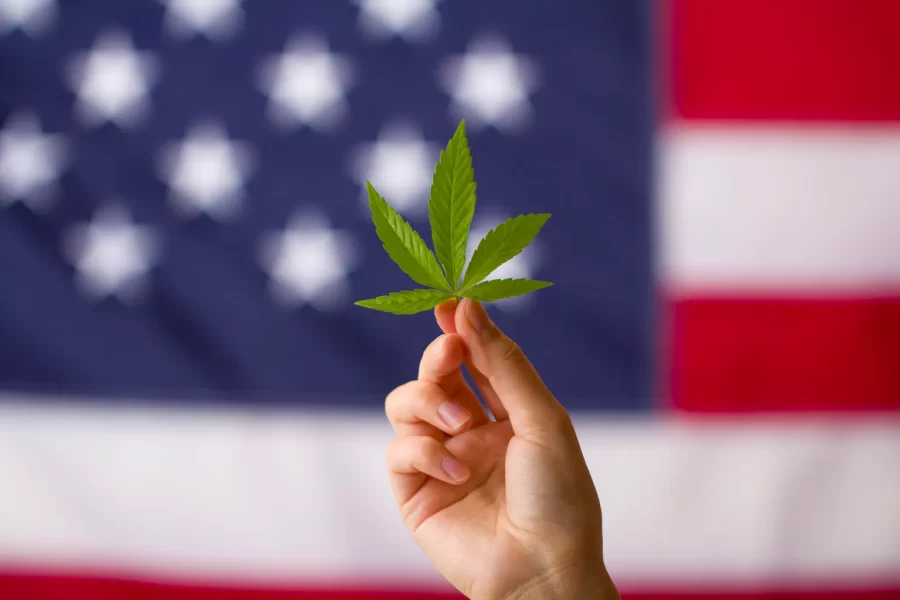Possible federal legalization of marijuana impacts students
April 20, 2022
The U.S. House of Representatives passed the Marijuana Opportunity Reinvestment and Expungement Act (MORE Act) on April 1. The act aims to decriminalize the use of marijuana at the federal level.
The bill requires passage in both the House and Senate and the president’s signature to be enacted into law. In the Senate, the bill requires to pass with 60 votes to clear the filibuster.
Ninety-one percent of Americans believe marijuana should be legal for recreational and medical use in 2021, according to the Pew Research Center. According to CNET, 18 states have legalized recreational use of marijuana, and 37 states and Washington D.C. have legalized use of medical marijuana.
Robert Claridge, senior lecturer of law and justice and former lawyer at the Florida Department of Health, said one caveat is just because the federal government has decriminalized cannabis doesn’t mean the states have to follow suit and decriminalize cannabis.
“The federal government making it legal may encourage or inspire other states towards that direction,” Claridge said.
Potential direct impacts of legalization
With legalization of marijunana use, related businesses would be able to deposit money into banks with FDIC protections, Claridge said. Currently, all aspects of the business have to remain within the boundaries of the state to avoid violating federal law.
Currently, customers can’t pay for marijuana products with credit cards for the same reasons, Claridge said.
In terms of understanding federal and state land, Claridge said, “It’s really about the land ownership in terms of knowing that you have the right to consume marijuana. The question under this law is going to be, am I standing on federal land?”
Potential indirect impacts of legalization
Lily De Young, a junior majoring in fashion, said, “There’s a lot of people currently locked up for possession when it’s legal in most places. It would make more sense for the whole nation to be on board with legalization.”
Claridge highlighted additional impacts of the bill such as, “allowing schools like Central Washington University that are located in states that have legalized the use of cannabis, to really allow their students pursuant to state law to consume marijuana on their campuses.”
Claridge said even though students may purchase cannabis products in one state legally, such as Washington, they can’t consume these products in other states where it is not decriminalized, such as Alabama. People may still face local restrictions and prosecution as local law can differ from federal law.
Other aspects to consider
This bill doesn’t impact or expunge any records for anyone currently federally incarcerated for possession of marijuana.
“The real implications are the ways in which, in states where it’s legal, like Washington, in regards to retail and consumption of cannabis, processes are more streamlined, probably make the product more accessible and, hopefully, cost a little bit less,” Claridge said.
Claridge said he predicts the federal government will still impose other restrictions around cannabis.
“Students who are interested and excited about this change, have lots of reasons to be,” Cladridge said. “I do think these changes, the indirect effects, will really benefit consumers of cannabis.”


